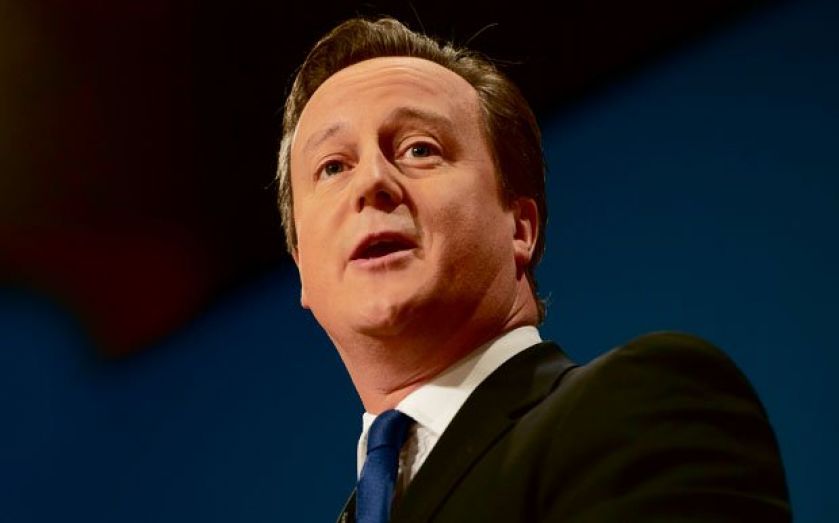Conservative party conference: David Cameron promises £7bn in tax cuts for 30m people

David Cameron yesterday fired the general election starting gun, issuing an emotional and impassioned speech in which he pledged to increase the tax-free personal allowance by £2,000 and raise the 40 per cent income tax band to £50,000. The tax giveaways are set to benefit 30m people, but will cost the Tories £7bn if they win in 2015.
Marking the end of Conservative party conference in Birmingham, the Prime Minister, who at times looked close to tears, put clear blue water between himself and Labour with a solid pitch aimed at aspirational middle-income workers who want to get on. He also sought to instil pride in his party, declaring: “You never pull one person up by pulling another one down. So this party doesn’t do the politics of envy and class warfare, we believe in aspiration and helping people get on in life – and what’s more, we’re proud of it.”
Identifying his party as a trade union for people who work hard, Cameron hit on blue-collar Tory values of aspiration and “something for something, not something for nothing”, as he made his case for a Conservative government. He also attacked Labour’s record on the economy, warning: “Let’s not go back to square one. Let’s finish what we have begun”.
The Tory leader pledged to deliver English votes on English laws, abolish the Human Rights Act, protect NHS spending and maintain the most competitive corporation tax rates in the G20 to attract new business during the wide-ranging address.
The speech was broadly welcomed by business leaders. However, Labour has raised questions about how the tax cuts would be funded. The £7bn bill for the pledges will stack up against the current £37bn estimated black hole in the UK’s finances up to 2018, as projected by the Institute for Fiscal Studies (IFS).
Both pledges will be fulfilled by 2020, but a Conservative spokesman yesterday said a decision would be made about when to introduce them on a “Budget by Budget basis” depending on the nation’s finances. Alongside the £25bn savings the next government must make in the first two years of the parliament, there could be another £19bn hole to fill, with further cuts to welfare and departmental expenditure likely, according to chancellor George Osborne.
Yesterday, the IFS calculated that increasing the personal allowance will benefit those on higher incomes more than low-paid workers. “Individuals on between £12,500 and £46,920 would gain £176 in 2020-21,” research economist Andrew Hood said.
“Most individuals with higher incomes would gain more in cash terms: £484 per year for those on between £50,000 and £123,240.”